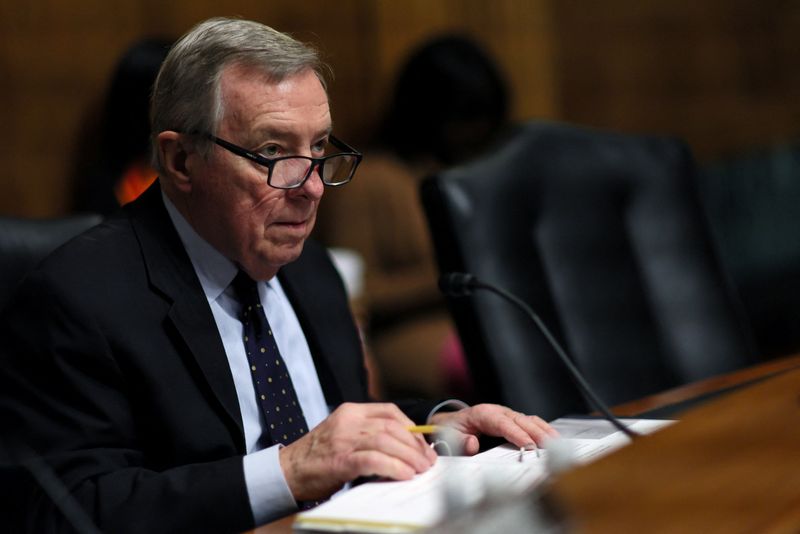By David Shepardson
WASHINGTON (Reuters) - The Senate's No. 2 Democrat asked the CEOs of United Airlines and American Airlines (NASDAQ:AAL) to answer questions on rising passenger complaints and higher ticket prices and fees.
Senator Dick Durbin said on Thursday he was taking a closer look at legislation proposed in January to require refunds for delayed flights and transportation on rival carriers, and prohibiting unnecessary airline fees as part of sweeping new consumer protections. Durbin's queries come as major airlines have clashed with him over credit card fee legislation as well.
Durbin, who chairs the Judiciary Committee, asked both airlines in a letter how they are "ensuring that this profit is not earned at the expense of a fair, pleasant, and affordable travel experience for consumers?"
Durbin also sought answers on how airlines are ensuring "consumers are not saddled with excessive or unnecessary fees."
The Biden administration earlier this year asked Congress to mandate airlines to pay cash compensation for delays of three hours or more when carriers are responsible, and provide new requirements for transparency over fees such as for baggage when booking tickets.
Congress has so far largely ignored those requests. A House aviation policy bill approved in July would bar airlines from charging family seating fees but would not set minimum seat sizes or impose new rules for compensation for delays.
Durbin's letter also went to Nick Calio, who heads Airlines for America, an industry trade group. United, American and the trade group did not comment.
Major airlines have heavily lobbied Congress in recent months to reject legislation co-sponsored by Durbin they say threatens their ability to offering rewards credit cards that give consumers frequent flyer miles for making transactions.
Durbin says the bill would address "outrageous" fees charged by Visa (NYSE:V) and Mastercard (NYSE:MA), and boost competition by directing the Federal Reserve to ensure that large credit card-issuing banks offer a choice of at least two networks over which an electronic credit transaction may be processed.

The bill would not apply to American Express (NYSE:AXP). Delta Air, which has a frequent flyer credit card with American Express, did not receive a letter from Durbin.
Airline unions oppose the bill they say "would provide a massive competitive advantage to Delta."
